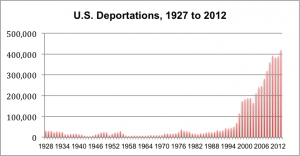Barring students from school is all too common in America. Across the country, schools turn to suspension as the preferred solution to many different kinds of student misconduct ranging from fighting to skipping school. Of course school authorities have to take action when students engage in serious misbehaviors. But an accumulation of evidence suggests that schools would do well to find alternative ways to proceed in many situations. Alternatives to suspension can do a better job of correcting student misbehavior – and may also improve safety for everyone at school and in the broader community. On their own, some school leaders are already taking important steps to reduce reliance on suspensions.
Suspensions Can be Ineffective and Harmful
Research shows that suspension is often a temporary solution that may exacerbate the problem it is intended to address. Suspension often seems like a good way to remove troublemakers from the scene of difficulties, improve security, and focus attention from parents and authorities on student misbehaviors. But there are also clear downsides. Suspension isolates students and increases time spent out of school for students who may already have records of truancy. more...


 Research to Improve Policy: The Scholars Strategy Network seeks to improve public policy and strengthen democracy by organizing scholars working in America's colleges and universities. SSN's founding director is Theda Skocpol, Victor S. Thomas Professor of Government and Sociology at Harvard University.
Research to Improve Policy: The Scholars Strategy Network seeks to improve public policy and strengthen democracy by organizing scholars working in America's colleges and universities. SSN's founding director is Theda Skocpol, Victor S. Thomas Professor of Government and Sociology at Harvard University.